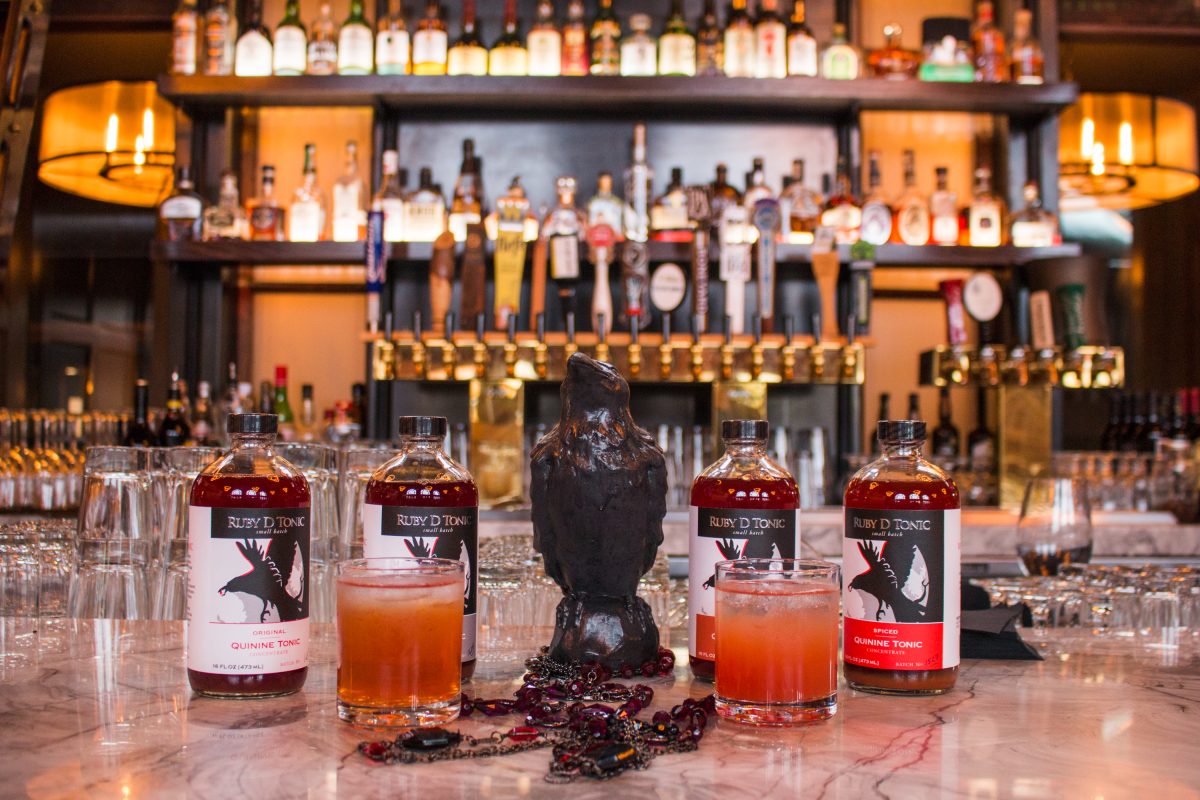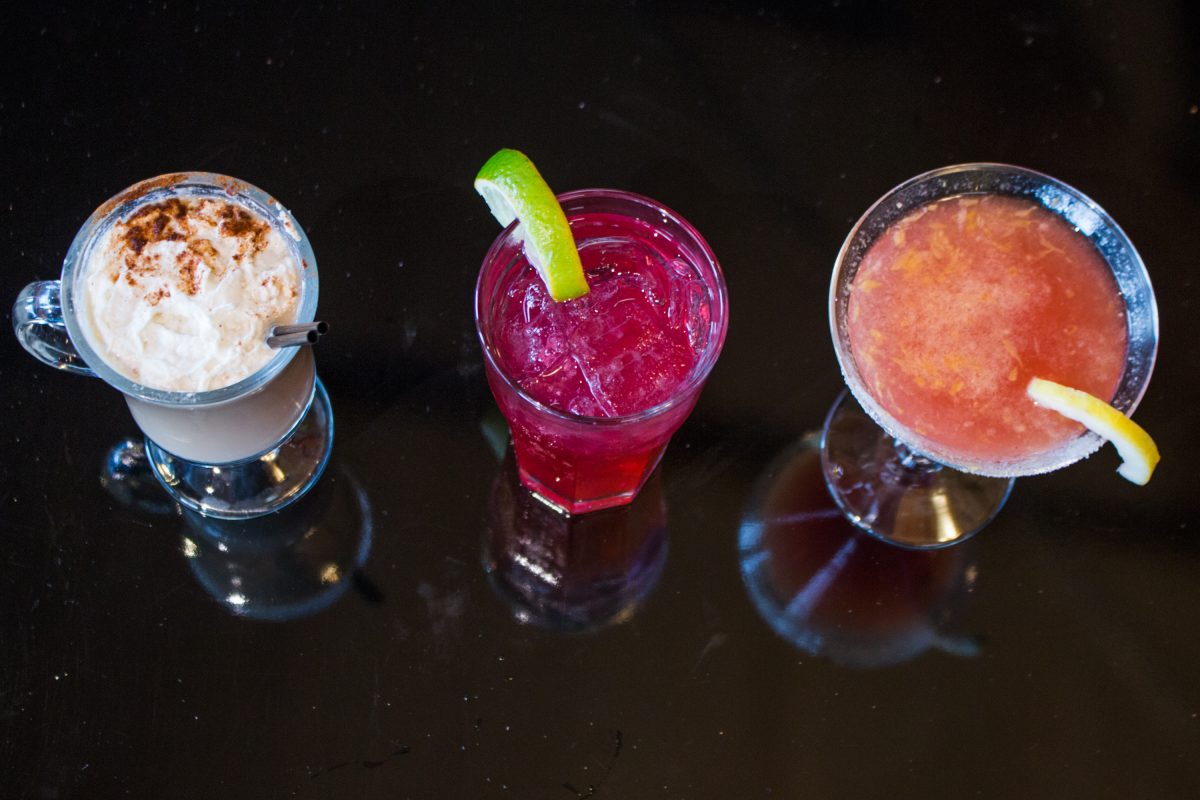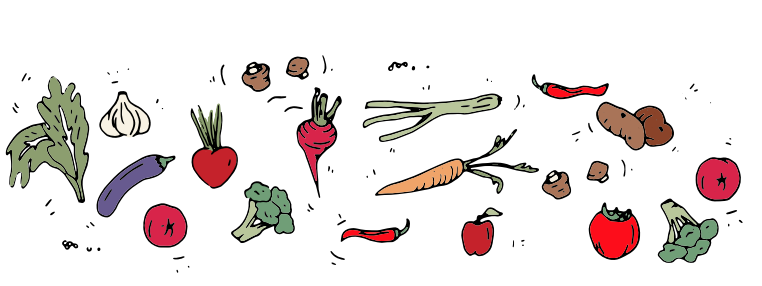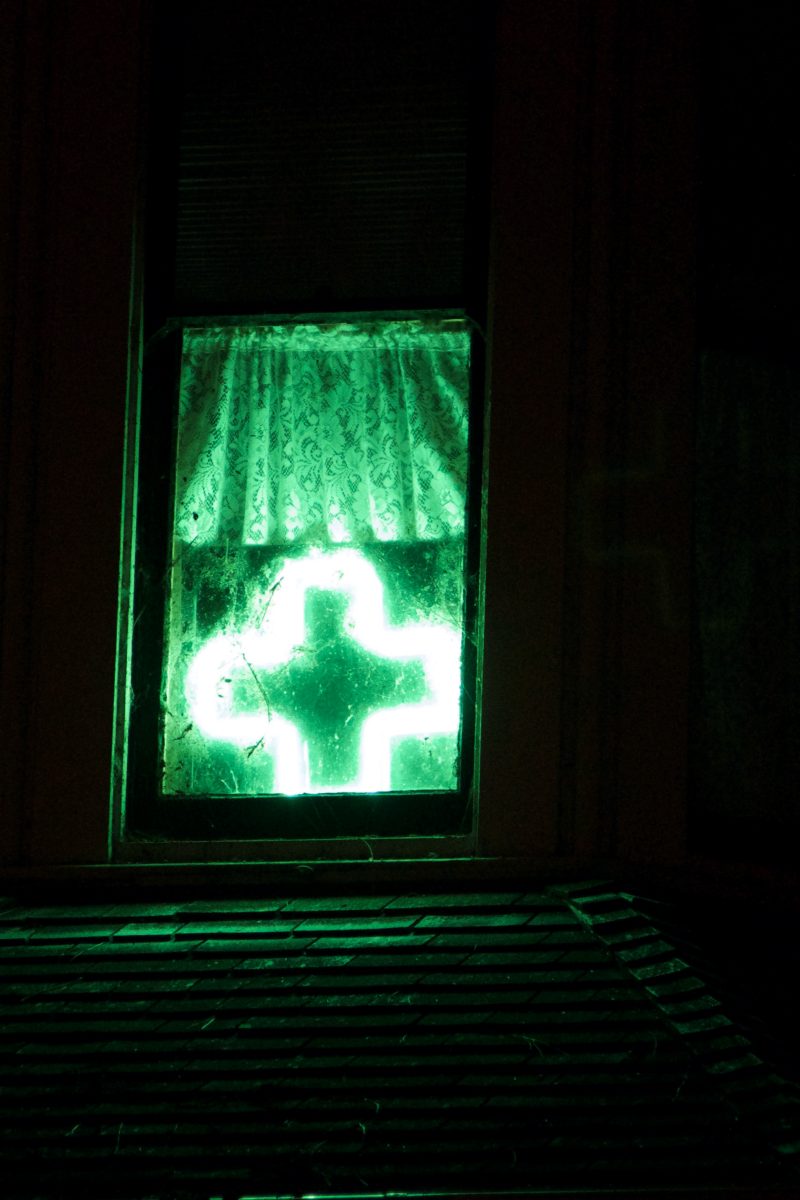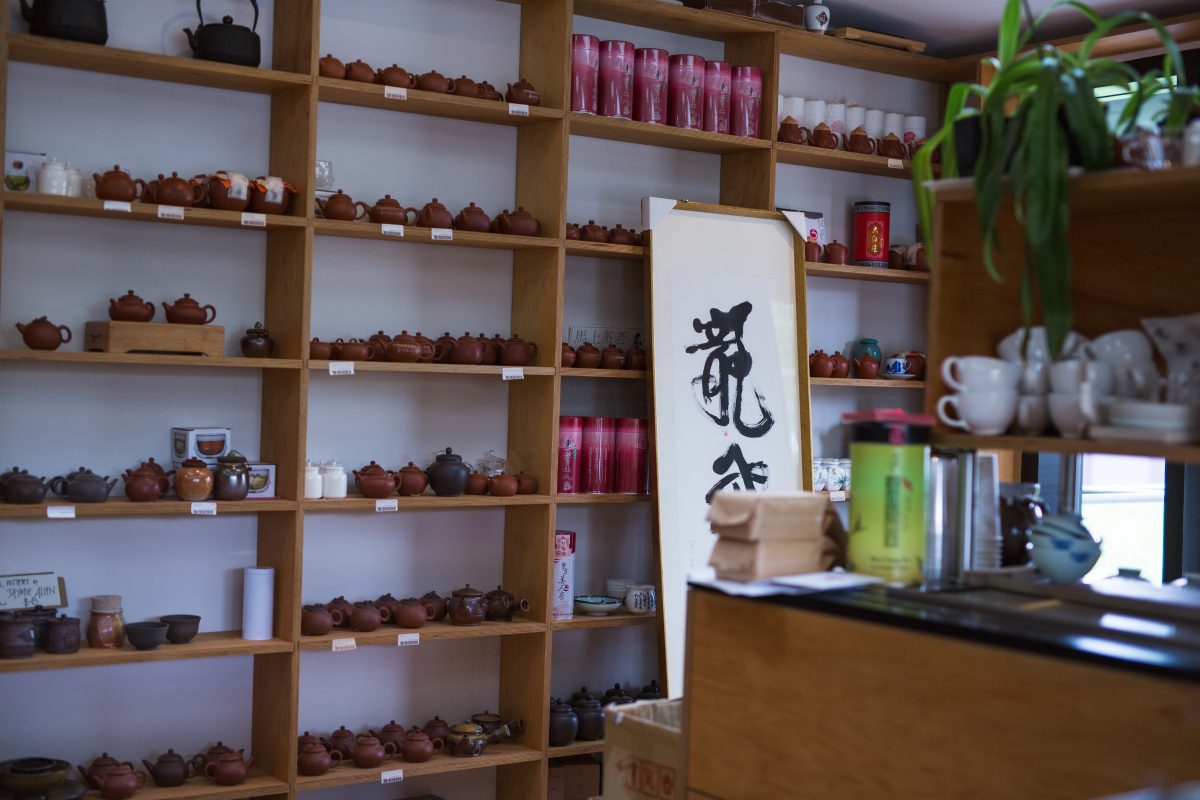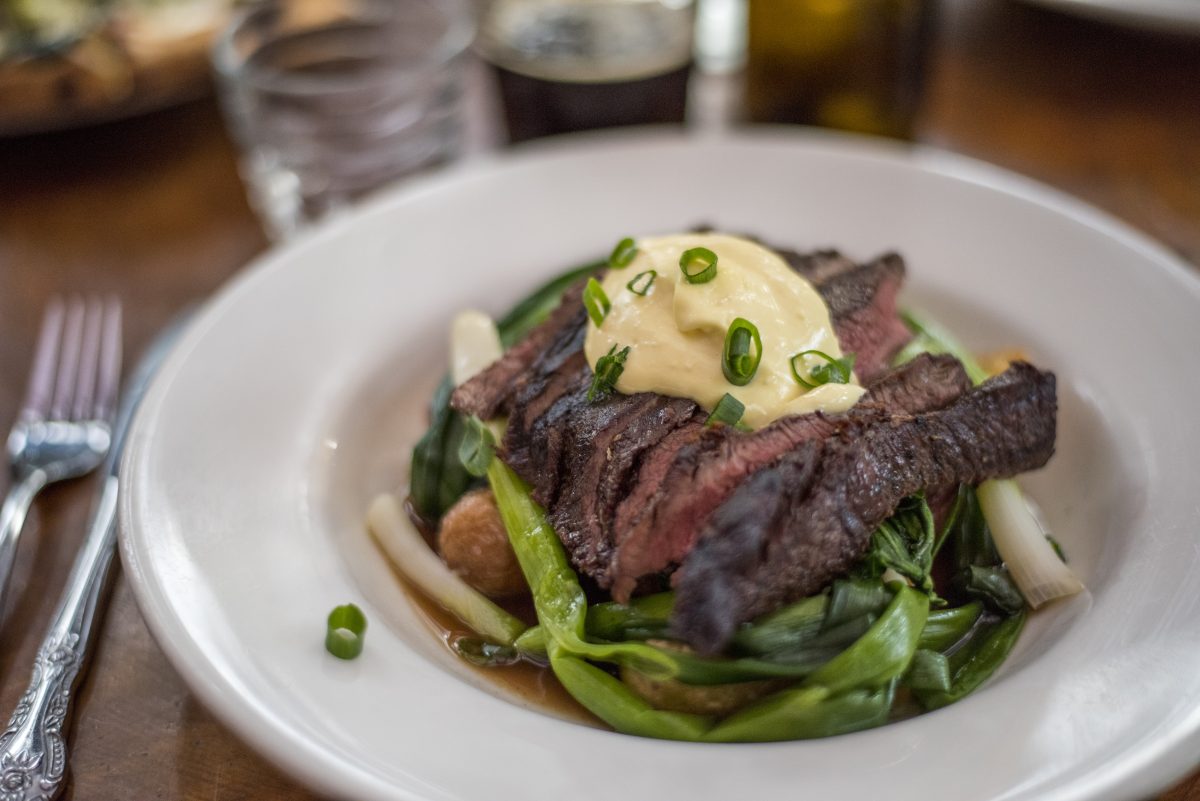Words by Russell Wilson, Photos by Hannah Giardina
PART I – MOLLY ROGERS – LOLA’S FRUIT SHRUBS
Molly Rogers has designed missile defense systems for fighter jets, the first snowboards for women, and accessible buildings for persons with disabilities.
The soft-spoken but exuberant southern native creates stuff. She always has. It’s what she’s good at.
Now, the 43-year-old engineer-turned-entrepreneur’s fledgling business – Lola’s Fruit Shrubs – is poised to take flight in the craft beverage market.
Not to be confused with a small tree, a “shrub” in the beverage world is a sweet, tangy and sometimes tart drink that originated in the days before electric refrigeration. In order to preserve fruit through the winters in warmer climes, it was packed into barrels of vinegar. After all the peaches, pears, apples, or lemons were removed, people discovered that the leftover vinegar was naturally sweetened and made a nice addition to a bowl of ice cream. Or a highball of bourbon.
Once forgotten, the drink’s popularity has been revived by the craft brewing boom. With demand high for flavorful alcohol and ready access to a variety of locally grown fruit and ingredients, Rogers may be in the right place at the right time.
Born in Houston, Rogers moved to New Orleans as a preteen and lived there through high school. The free-wheeling, eclectic, live-and-let-live Big Easy left its imprint on her spirit, but so did a less likely place – the dusty west Texas town of Sweetwater. She and her family traveled there in the summers to visit her great-grandmother Lola.
“She was quiet, but a really fun person,” Rogers says of her. “She was married to Baptist minister. Every time he would go out on a mission or something like that, [the women] would draw the blinds and drink and dance and gamble and play cards. They found ways to have a good time.”
Lola made shrub with vinegar and peaches. When not taking it with bourbon in secret, she would pour it over homemade ice cream. Rogers remembers how the sweet and sour worked together to make a one-of-a-kind taste. It is just one of many fond memories of her great-grandmother.
After earning a mechanical engineering degree from Texas A&M, Rogers’ embarked on a career arc that took her from designing countermeasure systems for fighter jets to the semiconductor industry to designing snowboards for K2. After that, she earned a graduate degree in architecture from the UO and stayed to teach and be an accessibility advocate for persons with disabilities (Rogers is a paraplegic).
All along, she had a hard time finding a good margarita in the Pacific Northwest. Like any good engineer faced with a problem, she started experimenting with her own mixes.
Years passed with little success. And then, sometime in 2012, she mixed lime with vinegar and gave it a try. In an instant, the unique flavor transported her back to those childhood journeys to west Texas.
“It was really compelling. I was totally shocked because it sounded so weird, but it was really good. I had to look it up. Did I just invent something here?”
She hadn’t, but the rediscovery of a long-forgotten taste convinced Rogers that she was onto something. Bringing samples to parties led to demand and customers. When berries came into season, she made shrub with strawberry, blackberry, raspberry, and elderberry.
“People were crazy for them,” she says. “I’ve always wanted to have my own business. It’s been a dream of mine as long as I can remember. And so I just thought, ‘I’ll give this a try. What do I have to lose?’”
Rogers left her position at the University of Oregon in 2013 to focus on perfecting her craft and building her business full time. In two years, Lola’s Fruit Shrubs has grown from party samples to a vendor booth at Saturday Market to the verge of appearing on grocery store shelves. The final hurdle, FDA approval, was cleared recently, opening the door to commercial distribution.
Rogers is ready to hit the road and make another dream job a reality. Only this time it will be one of her own imagining; one that will pay homage to her beloved great-grandmother with every bottle of shrub she sells. Especially the peach flavor, just like Rogers had over ice cream on those hot summer days as a girl.
“My whole career I’ve taken something from just a little concept or an idea all the way through to mass production,” she says with a smile. “It’s something that I’m good at. And I am so ready to get out there.”
*
Flavors: raspberry lemon, blueberry ginger, strawberry balsamic, blackberry basil, straight lime, classic orange
Price: $15/1 liter bottle
Available at: 100 Mile Bakery in Springfield and lolasfruitshrubs.com
PART 2 – MICHAEL ZARKESH – CIRCADIAN COMPANY
“How d’you not like Soda?! It’s bubbly, it’s refreshing!” – George Costanza, Seinfeld, 1996
Michael Zarkesh has a lot in common with the drinks he makes – bubbly like his sodas, and full of energy like his cold brew coffee. Mix in his friend and business partner Randy Adams, and you get the Circadian Company, one of Eugene’s newest craft beverage makers. And, according to them, they are having more fun at creating drinks than anyone else.
Need proof? Look no further than the “about us” page on the website.
“Our web designer said we had to have a picture. She said can be anything, even a stick figure, as long as there’s something. So,” he says with a shrug and a wry grin, “me and Randy grabbed a piece of paper drew ourselves as stick figures giving each other a high-five.”
Zarkesh, 30, was born in Toledo, Ohio, grew up in Grand Junction, Colorado, and came to Eugene in 2003 to attend the University of Oregon. His interest in political activism and nonprofit work led him to a degree in political science with minors in public policy and philosophy – just in time for the economic collapse of 2007-08.
Luckily, however, he also (unofficially) minored in beer, educating himself by brewing at home and earning his credentials as a certified beer judge.
“I have a crazy fascination with sensory evaluation,” he says. “When you discover something like flavor, you learn anything and everything you can about that pursuit.”
A job at a local homebrew shop further pulled Zarkesh into the beer world, and he made a goal for himself to start a brewery in five years. Right on schedule, he became a cofounder of Falling Sky brewery in 2012.
After two years, he left, unsure of what he was going to do next. Then he rediscovered coffee.
“I didn’t drink coffee for five or six years. It was too acidic, and I didn’t like the caffeine crash,” he says. “But I discovered that I really liked the cold brew. I became fascinated with it and started looking for ways to infuse it with beer. And I thought, wow, there’s really a lot you can do with this, and I kind of just went down the rabbit hole.”
But there was another rabbit hole yet to go down. While at Falling Sky, Zarkesh helped develop the soda program, and always managed to have some at home to drink by itself or as a cocktail mixer. He also noticed that not everyone who goes to a bar drinks alcohol. Many patrons tag along in order to hang out with friends, but, left with a choice between iced tea or commercial sodas chock full of corn syrup, they get discouraged and go home.
So he started experimenting with sodas as well, using his brewing expertise to mix the best combinations of local, all-natural ingredients with CO2 to create sparkling perfection. Friends who came over for drinks tried it, loved it, and asked him why he wasn’t selling it.
In early 2015, Zarkesh and Adams formed Circadian Company, and their coffees and sodas are on tap in a handful of bars and growler fill stations. (Packed with 30% fruit juice, the soda is too volatile to be bottled, and is limited to take-home containers.)
While the duo hopes to expand their business and find a more permanent production space, they are not in it to get rich.
“Values are what matters. Money is not the object for us,” Zarkesh says. “If at any point the friendship is compromised, the business will fold first. Just let everything move forward at its own pace like it has.”
“We just want to make a living enjoying what we do. It’s not a business, it’s a lifestyle. We’re just happy to be able to share our energy and creativity with folks. Let’s have some fun. It’s all we’ve got.”
Just like their motto says: simple and delicious.
*
Flavors: coffee (custom roasted from Equiano Coffee) – cold brew, concentrated cold brew, flavored seasonal brew; soda — Sparkleberry (Berry Lemonade), Squint (Grapefruit), Orange Dream (Orange Vanilla), Pink Flamingos (Hibiscus Punch), Cheery Sunday, Apple Sunday
Price: varies by location ($2-$5)
Available at: Beer Garden, The Beer Stein, Tap & Growler, Whirled Pies, Hop Valley Tasting Room, Cornucopia 17th & Lincoln
Website: circadiancompany.com
PART 3 – DAVID DONALD – RUBY D TONICS
When David Donald says his foray into the craft beverage business came to him in a dream, he means it. And it all began with a Soda Stream.
Not because it made good tonic. In fact, the syrup was terrible, in his opinion. “Sickeningly sweet.” For someone who loves a good gin and tonic, it wouldn’t do. The clear tonics that came off the supermarket shelves were not much better.
For the main ingredient in the cocktail – two-thirds, according to his preference – you may as well have a good tonic, he reasoned. A recently-retired systems analyst and programmer for the City of Eugene, Donald had time to tinker. He did some research online and tried some do-it-yourself recipes.
And then, one night, he had a dream.
“It was a really vivid dream. And there was this tonic, a ruby red tonic, in this beautiful clear glass bottle.” He told his wife, Kim, about it, and more or less forgot.
But she didn’t. For his next birthday, she surprised him with a kit to make the real, red stuff. A couple of years later, he can hardly keep up with the demand coming from all corners of the country.
In the process, he has become more than just a fan, but a historian of the quinine-based drink. The main ingredient is derived from the bark of the cinchona tree, which is native to high-elevation tropical Andean forests of western South America. It is named after the Second Countess of Cinchon, wife of a viceroy of Peru, who was reportedly cured of an illness in 1742 by drinking a bitter native tea remedy made from its powdered bark.
Not long after, it was discovered to be a cure for malaria. In the early 1800s, when the disease was rampant in India, British soldiers were given daily rations of quinine that they mixed with sugar to mitigate the biting bitterness. The officers, however, were privileged to get a ration of gin. Throw in the limes they had to eat to protect from scurvy, and the gin and tonic was born.
“Thank God for the British and the mosquito.”
Donald Started making batches at home, making notes as he and his wife tasted and adjusted variables. Too citrusy; too bitter; too weak; not enough of this or that. After six or seven batches he “got down to some pretty good tasting stuff.”
He started having friends try it. They approved. Next came the big test: having strangers try it.
To his joy, and relief, they loved it.
But he had one more hoop to jump through. More like the eye of a needle.
Because quinine is in the gray area between food and drug, the Food and Drug Administration has stringent standards for purity and content. Finding a lab to test his tonic took time and money, but he got approved, and started production right away, renting kitchen space from Sprout in Springfield by the hour.
Though his recipe is a secret, he is happy to divulge the fact that he uses agave instead of cane sugar. Except for the cinchona bark he has to order (only because it doesn’t grow here), every ingredient is organic and locally grown via Glory Been and Mountain Rose Herbs.
Despite no other marketing but samples and word of mouth, Donald has made many fans already. He says orders grew ten-fold in his second year, 2015, and could grow even three times more this year.
Even so, he and his wife still number every bottle by hand, and he includes a personal note in every box he ships out.
“It’s kind of cool at certain age to do something like this,” he says. “I don’t want to play golf. I want to make something. If I make money at it, fine. And if not, it’s been a good adventure.”
*
Flavors: original, spiced, citrus, extra bitter
Price: $11/8 oz. bottle, $17/16 oz. bottle online, varies by location
Available at: South Eugene Liquor, Long’s Market deli, Marche Provisions
Website: rubydtonics.com
Categories:
A Round for Oregon: Local brewers offer new twists on old favorite drinks
Russell Wilson
March 30, 2016
Molly Rogers has designed missile defense systems for fighter jets, the first snowboards for women, and accessible buildings for persons with disabilities.
The soft-spoken but exuberant southern native creates stuff. She always has. It’s what she’s good at.
A Round for Oregon: Local brewers offer new twists on old favorite drinks
0
Donate to Ethos
Your donation will support the student journalists of University of Oregon - Ethos. Your contribution will allow us to purchase equipment and cover our annual website hosting costs.
More to Discover


